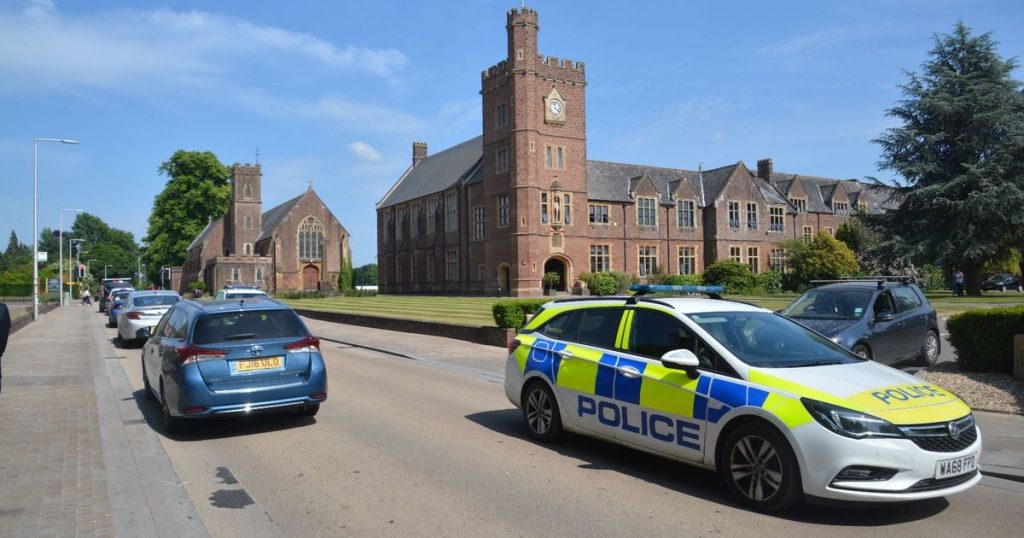Two boys were sleeping in cabin-style beds at Blundell’s School in Tiverton, Devon when the defendant allegedly attacked them with severe injuries. The accused, a 16-year-old student, climbed up to the beds armed with three claw hammers and attacked the boys who sustained skull fractures, rib injuries, lung punctures, and internal bleeding. The housemaster heard the noises and went to investigate, where he was also attacked. The defendant claims he doesn’t remember the incident and insists that he was sleepwalking during the attack. Despite admitting to carrying out the attacks, he pleads not guilty to attempted murder due to sleepwalking.
During his court testimony, the accused stated that he remembers going to bed on the night of the incident but recalls waking up to a room covered in blood. He mentioned that he has a history of sleepwalking, with past instances of being found at the bottom of a staircase at home by his mother. When questioned about his behavior, he explained that he kept two hammers by his bed for protection, along with a screwdriver and a Swiss Army knife, due to his belief in the zombie apocalypse. Despite conducting searches about serial killers and prison sentences, the accused attributed his curious behavior to his autism.
The accused detailed his experiences leading up to the attack, stating that he felt scared and anxious after being arrested and taken into police custody. He mentioned searching for information about zombies due to his interest in TV series like The Walking Dead. The court heard that the defendant waited for the two boys to fall asleep before climbing up to their cabin-style beds and attacking them. Both boys survived after undergoing extensive life-saving surgeries, while the housemaster received multiple blows to his head during the incident. The defendant denies attempted murder charges and insists on his defense of being sleepwalking.
The trial at Exeter Crown Court continues as the accused teenager faces three charges of attempted murder for the attacks at Blundell’s School. His legal team argues that his actions were a result of sleepwalking, despite his admission to carrying out the attacks. The court heard evidence of the severity of injuries sustained by the victims and the traumatic nature of the incident that took place in the boarding house of the exclusive private school. The defendant’s portrayal of being scared and anxious after the incident contrasts with the violent nature of the attacks, raising questions about the sleepwalking defense and its validity in court.
The accused student’s testimony about his actions, beliefs, and behavior before and after the attack sheds light on his mental state and understanding of the events. His claims of sleepwalking, combined with his interest in apocalyptic scenarios, raise concerns about his mental health and the underlying reasons for the violence at the prestigious private school. The court case highlights the complexities of the legal system when dealing with cases involving mental health issues, defensive mechanisms, and the impact of serious crimes on multiple victims. As the trial unfolds, more details emerge about the teenager’s motives, actions, and potential consequences of his alleged sleepwalking defense in court.


